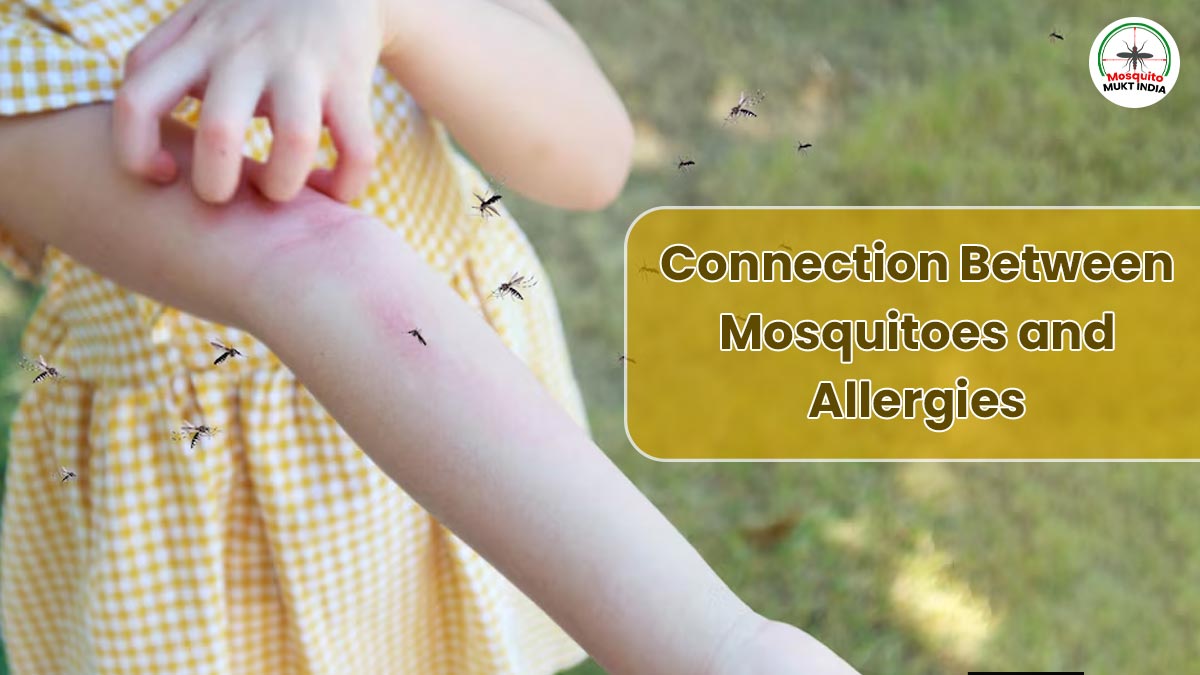
For most of us, mosquito bites are just an itchy nuisance, but for some, these tiny bites can lead to much more than just irritation. If you've ever noticed an unusual reaction after a mosquito bite, you’re not alone. Mosquitoes can trigger allergic reactions in certain individuals, leading to symptoms that range from mild itching to severe, body-wide responses.
Table of Content:-
World Mosquito Day is observed on 20 August every year and serves as a reminder of the ongoing fight against mosquito-borne diseases. To mark this day, we have launched the "Mosquito-Mukt India" campaign, aimed at raising awareness and empowering communities to combat mosquito-borne diseases for a healthier, safer nation. We spoke to our expert Dr PN Sahu, Internal Medicine, Manipal Hospital, Bhubaneshwar, who explained the connection between mosquitoes and allergies and their treatment and preventive measures.
According to a 2023 study, mosquitoes are among the most dangerous creatures on Earth and pose a significant public health threat. Each year, over one million people die from diseases transmitted by mosquitoes, while around 700 million people are affected by these illnesses.
“A mosquito injects saliva into the skin during a bite to stop the blood from clotting. This saliva contains various proteins and enzymes that help the mosquito feed uninterrupted. However, these proteins can also trigger an immune response in some individuals, leading to allergic reactions,” said Dr Sahu.
Types of Allergic Reactions Due To Mosquito Bites
Dr Sahu listed the types of allergic reactions due to mosquito bites as follows:

Localised Reactions
Many people experience mild to moderate localised reactions to mosquito bites. This includes redness, swelling, and itching around the bite area. These symptoms typically resolve on their own within a few days and are not considered allergic reactions in the immunological sense.
Large Local Reactions
Some individuals may experience more pronounced reactions known as large local reactions. These involve significant swelling (greater than 10 cm in diameter), redness, and itching that can last for several days. These reactions are not allergic but are rather exaggerated responses to the mosquito's saliva.
Also Read: Combating Dengue And Malaria: 5 Plants That Can Naturally Repel Mosquitoes
Systemic Allergic Reactions
In more severe cases, mosquito bites can trigger systemic allergic reactions. This occurs when the immune system overreacts to proteins in the mosquito's saliva and releases histamine and other chemicals throughout the body. “Symptoms include generalised hives (urticaria), swelling away from the bite site (angioedema), difficulty breathing, and wheezing. In rare cases, anaphylaxis—a severe and potentially life-threatening allergic reaction,” added Dr Sahu.
How To Diagnose Mosquito Bite Allergies?

Diagnosing mosquito bite allergies often involves assessing the symptoms and medical history. Allergists may perform skin prick or blood tests (specific IgE tests) to identify allergies to mosquito saliva proteins. These tests can help confirm whether an individual is allergic and guide appropriate management strategies.
How To Treat Mosquito Bite Allergies?
Treatment for mosquito bite allergies typically involves managing symptoms and preventing future bites. Here are some expert-recommended treatment measures:

- Symptomatic Relief: Over-the-counter antihistamines can help relieve itching and reduce swelling associated with mosquito bites. Inflammation can also be decreased by topical corticosteroids.
- Avoidance Strategies: Preventing mosquito bites is key. This includes using insect repellents containing DEET, wearing long sleeves and pants outdoors, and using screens on windows and doors to keep mosquitoes out.
- Immunotherapy: For individuals with severe allergic reactions, allergen immunotherapy (desensitisation) may be considered. This involves gradually exposing the person to small amounts of mosquito saliva proteins to desensitise their immune system over time.
- Emergency Preparedness: Those with a history of severe allergic reactions (anaphylaxis) should carry an epinephrine auto-injector (EpiPen) and seek immediate medical attention if symptoms of anaphylaxis develop.
Also Read: Using Mosquito Repellents For Mosquito Protection: Doctor Explains Its Hidden Dangers
How To Prevent Mosquito Bite Allergies?
Preventing mosquito bites is crucial for individuals prone to allergic reactions. Besides using insect repellents and wearing protective clothing, other preventive measures include:

- Avoiding Peak Mosquito Hours: Mosquitoes are most active during dawn and dusk. Try to stay inside during these hours.
- Eliminating Breeding Sites: Standing water is a breeding ground for mosquitoes. Eliminate standing water around your home (buckets, flowerpots, and bird baths) to reduce mosquito populations.
- Mosquito Nets: Use mosquito nets over beds, especially in areas where mosquitoes are prevalent.
Bottomline
Dr Sahu concluded, “While mosquitoes are primarily known for their irritating bites, they can also provoke allergic reactions in susceptible individuals. Understanding the connection between mosquitoes and allergies involves recognizing the range of symptoms—from mild itching to severe systemic reactions—and implementing appropriate prevention and treatment strategies. For those with significant allergies to mosquito bites, consulting an allergist can provide personalised advice and management options to minimise the risk of allergic reactions and ensure a safer outdoor experience.”
[Disclaimer: This article contains information provided by an expert and is for informational purposes only. Hence, we advise you to consult your own professional if you are dealing with any health issues to avoid complications.]
Also watch this video
How we keep this article up to date:
We work with experts and keep a close eye on the latest in health and wellness. Whenever there is a new research or helpful information, we update our articles with accurate and useful advice.
Current Version
